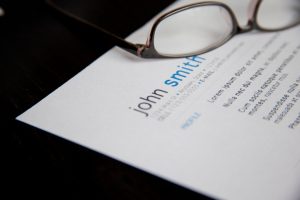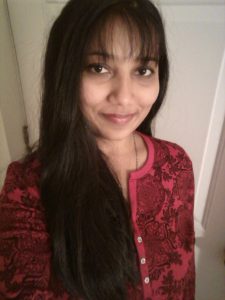 You might have asked yourself the above question several times during college or even in graduate school. You might have also wondered where to start with while working on a resume or how does an ideal one even look like? As my colleague, Ally Hunt, pointed out last week – “It takes a village to build up a resume!” and I could not agree more with her!
You might have asked yourself the above question several times during college or even in graduate school. You might have also wondered where to start with while working on a resume or how does an ideal one even look like? As my colleague, Ally Hunt, pointed out last week – “It takes a village to build up a resume!” and I could not agree more with her!
Luckily, at the Office of Career Services, we have the right resources to help you get started and navigate smoothly throughout the process. The major differences between a resume and a CV would lie in the length, content and the jobs you are applying to. To begin with, a resume is a one page snapshot of your past employment experience and skills tailored to the position you are applying. I use the term “snapshot” here since many times, you would not be able to write about every single job experience you have had. The resume is your one chance to showcase how your past experience and current skills MATCH with the job being advertised. And ultimately, a well-crafted resume makes you stand out in the pool of applicants. It needs to be simple, concise, up to date and action-oriented.
While a resume is intended to be brief and catch the attention of the employer, a CV is a detailed overview of the applicant’s academic and non-academic accomplishments, specifically relevant to the field of academia and research. A CV can have multiple pages. Being in a PhD program, I have often switched between using a resume and a CV depending on the employer’s requirements and the job description. Most often, I would use my CV, which is also called an academic CV, for positions in research settings, teaching, and grants’ along with scholarships’ applications.
In some rare cases, you would need both. For example, recently, I went for an informal interview meeting at a non-profit organization which is engaged into educating and serving elderly populations. I was applying for a volunteer position and I presented both my resume and my CV to the multi-disciplinary team there. My resume served as a broad overview of my skills and experience while my CV delved deeper into my research background. Here is also a link from the Office of Career Services which describes the differences between a resume and a CV.
 In that one page resume, there are four main components which need to be included: contact information, education, skills and experience. Your references can be made available as a second document or upon request by the employer. Under each of these main categories, the best way to keep it concise is to judiciously use bullet points. This makes your resume appear neat and well put together. In contrast, a CV may include the following: contact information, area of study for all degrees, work experience, teaching experience, research interests, dissertation, publications, grants obtained, leadership and service work, professional affiliations and specific skills along with certifications.
In that one page resume, there are four main components which need to be included: contact information, education, skills and experience. Your references can be made available as a second document or upon request by the employer. Under each of these main categories, the best way to keep it concise is to judiciously use bullet points. This makes your resume appear neat and well put together. In contrast, a CV may include the following: contact information, area of study for all degrees, work experience, teaching experience, research interests, dissertation, publications, grants obtained, leadership and service work, professional affiliations and specific skills along with certifications.
Keeping it simple does not mean boring. The trick is to use appropriate action verbs. For example, I was in charge of assisting the manager of a food processing industry in college. Instead of saying “I was in charge of”, I used these words “I supervised or delegated daily tasks…” next to my job description “Quality Control Manager’s Assistant Trainee”. Whether it is to describe helping skills, technical ones, accomplishments or leadership positions, we have come up with a whole set of action verbs which can help you amp your resume – action verbs.
Writing a resume is a tedious task and from my own experience, I can say that mine went through several revisions before it looked professional. As you progress through your studies and career, it is very important that you edit and keep your resume and/or your CV updated. We recommend you getting your first draft of resume critiqued by your friends and colleagues. And most importantly, we have several people at the Office of Career Services to help you with your resume, whether it is our peer mentors or career coaches who have flexible hours throughout the week to help you with any questions or concerns you have.
 Resumes and CVs constitute one important component of the application process and aside from nailing your resume, there are other different aspects such as writing an effective cover letter. Come and join us for our “Make the Cut, Crafting Competitive Application Materials Workshop” on Wednesday, January 18 from 6pm to 7.30pm in PH 125. We also highly encourage you to RSVP to this workshop if you are interested. More information about this workshop can be found on here. And if you are writing your resume, help is just a step away with the Office of Career Services.
Resumes and CVs constitute one important component of the application process and aside from nailing your resume, there are other different aspects such as writing an effective cover letter. Come and join us for our “Make the Cut, Crafting Competitive Application Materials Workshop” on Wednesday, January 18 from 6pm to 7.30pm in PH 125. We also highly encourage you to RSVP to this workshop if you are interested. More information about this workshop can be found on here. And if you are writing your resume, help is just a step away with the Office of Career Services.

Trishnee is a second year PhD student in the Department of Applied Health Science and her major is Health Behavior. She was born and raised in Mauritius and is currently having the best time pursuing her doctoral studies and working on her research goals in the wonderful B-town. Her hobbies include cooking, knitting, gardening, reading romantic novels, and playing with her pets. Anything related to health highly interests her and she hopes to reach out to others on health-related issues that matter.


